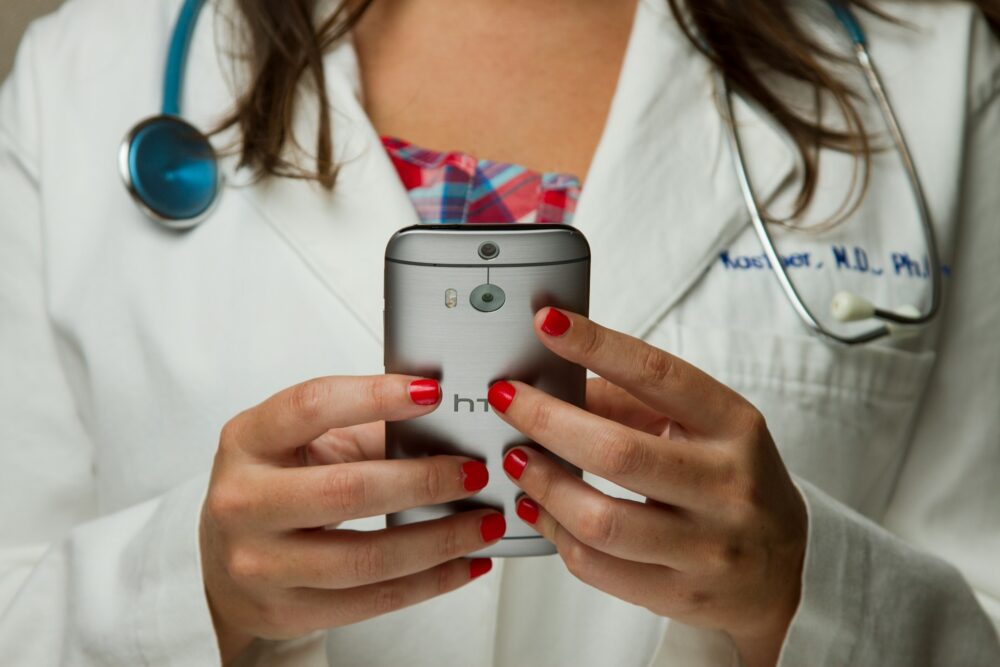Biotech
The ‘Bialert Sepsis’ AI Can Predict a Septic Crisis 24 Hours in Advance in 96% of Cases
The Institute of Knowledge Engineering (IIC) has developed ‘Bialert Sepsis,’ an AI tool predicting sepsis risk 24 hours in advance with 96% accuracy. It continuously collects patient data, sending alerts to the medical team. Trained on over 200,000 Spanish patients, this tool aids clinicians by guiding tests and treatment without replacing doctors, enhancing decision-making.

The Institute of Knowledge Engineering ( IIC ) has designed ‘Bialert Sepsis,’ the first Spanish Artificial Intelligence (AI) tool that anticipates the risk of sepsis 24 hours in advance with 96 percent predictive capacity.
BIAlert Sepsis anticipates what the doctor does not see and collects information from the patient’s medical history every 30-45 minutes from the moment they enter the hospital. It also sends alerts to the medical team, indicating the risk of sepsis 24 hours before the syndrome occurs. The solution has been trained with data from more than 200,000 Spanish patients and the algorithm learns more and more over time.
To install BiAlert you must receive approval from the hospital’s ethics committee and sign a data protection agreement
Dr. Marcio Borges, coordinator of the Multidisciplinary Sepsis Unit at Son Llàtzer University Hospital in Palma de Mallorca and president of the Sepsis Code Foundation, explained “BiAlert can see things that doctors do not see because sometimes we do not give importance to a certain piece of information.”
“That can have validity because we have a limited capacity and technology like AI can work.” Furthermore, he highlighted the great advance that this tool represents. “These are results that we cannot have with any other technique or with human capacity and with artificial intelligence we can,” Dr. Borges concluded.
In this way, the AI warns that the patient has possible sepsis, guides what tests should be done on this patient and finally what type of treatment can be offered. “That is the future, not only to warn about possible sepsis, but to guide and help the clinician in their decision making. This is the support that these technologies are going to give us. It is not going to replace doctors, it is going to help us think ,” explained Dr. Borges.
BiAlert has been operating for two years at the Son Llàtzer University Hospital in Palma de Mallorca
The Director of the IIC Health area, Elisa Martín , has explained that they are incorporating AI software into their patient management systems at the 12 de Octubre Hospital in Madrid and the Albacete University Hospital Complex. This occurs after the tool has been in operation for two and a half years at the Son Llàtzer University Hospital (Palma de Mallorca).
To install BiAlert you must receive approval from the hospital’s ethics committee and sign a data protection agreement. You only need to have a server, with a computer with some memory; and the development of a dictionary to label clinical criteria in a standard way in each hospital. It does not generate additional work for the professional. It is installed remotely and a remote review is also done to confirm that everything works correctly.
__
(Featured image by National Cancer Institute via Unsplash)
DISCLAIMER: This article was written by a third party contributor and does not reflect the opinion of Born2Invest, its management, staff or its associates. Please review our disclaimer for more information.
This article may include forward-looking statements. These forward-looking statements generally are identified by the words “believe,” “project,” “estimate,” “become,” “plan,” “will,” and similar expressions. These forward-looking statements involve known and unknown risks as well as uncertainties, including those discussed in the following cautionary statements and elsewhere in this article and on this site. Although the Company may believe that its expectations are based on reasonable assumptions, the actual results that the Company may achieve may differ materially from any forward-looking statements, which reflect the opinions of the management of the Company only as of the date hereof. Additionally, please make sure to read these important disclosures.
First published in iSanidad. A third-party contributor translated and adapted the article from the original. In case of discrepancy, the original will prevail.
Although we made reasonable efforts to provide accurate translations, some parts may be incorrect. Born2Invest assumes no responsibility for errors, omissions or ambiguities in the translations provided on this website. Any person or entity relying on translated content does so at their own risk. Born2Invest is not responsible for losses caused by such reliance on the accuracy or reliability of translated information. If you wish to report an error or inaccuracy in the translation, we encourage you to contact us

-

 Crowdfunding2 weeks ago
Crowdfunding2 weeks agoSpain’s Real Estate Crowdfunding Boom: Opportunity, Access, and Hidden Risks
-

 Fintech6 days ago
Fintech6 days agoDruo Doubles Processed Volume and Targets Global Expansion by 2026
-

 Impact Investing2 weeks ago
Impact Investing2 weeks agoIntesa Sanpaolo’s 2026–2029 Growth and ESG Strategy
-

 Business4 days ago
Business4 days agoTopRanked.io Weekly Affiliate Digest: What’s Hot in Affiliate Marketing [Health Trader Affiliate Program Review]

























